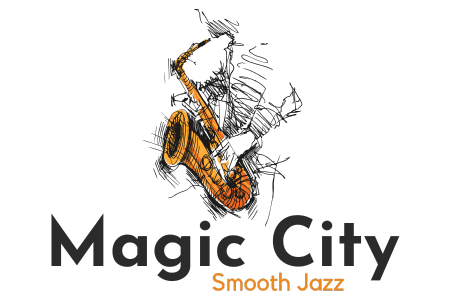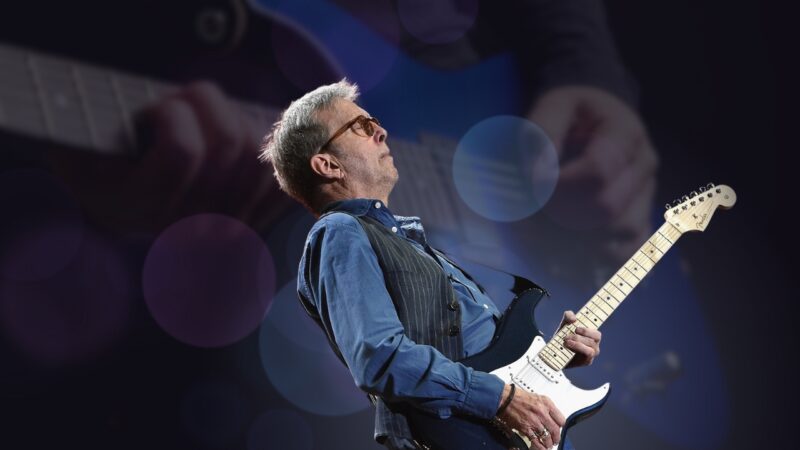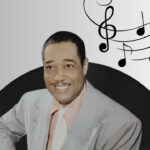Blues music is like a river. It’s been flowing and changing for over a century, carrying a deep current of understanding and experience, rich with real life and raw emotion. As a devout follower of this river, I’ve sat on its banks, listened to its songs, and witnessed the phenomenal guitarists who have added their voices to its flow. From the sweet sorrowful strains of the Delta blues to the raw intensity of electric blues, these are the masters who’ve shaped its course.
Immerse yourself in this journey down the river of blues. Let’s pay homage to the pioneers, the innovators, the stalwarts, and the prodigies. Here are the 15 best blues guitarists of all time, each unique yet bonded by the soulful language of this genre.
1. Robert Johnson
Let’s start with the very root of the tree, Robert Johnson. This Mississippi maestro’s life was shrouded in mystery and myth, but his influence on blues guitar is indisputable. Johnson’s remarkable ability to mesh vocals with intricate finger-picking patterns set a new standard for the generations of guitarists that followed.
Johnson’s recordings from the late 1930s serve as foundational documents of the blues genre. His intricate picking style, coupled with a voice that could convey profound sadness or ecstatic joy, painted vivid pictures of the human condition. The influence of his limited but potent body of work is undeniable, permeating the playing of countless artists who came after him.
2. B.B. King
Next, we have the undisputed “King of the Blues,” B.B. King. His style was as soulful and large as the man himself. King’s approach was more about the notes he didn’t play, creating a sense of anticipation and relief in his music that was deeply emotional.
B.B. King’s relationship with his guitar, which he famously named “Lucille,” was an essential aspect of his performance. He communicated through Lucille with a sweet yet stinging tone that captured the entire spectrum of human emotions, shaping the very language of blues guitar.
3. Muddy Waters
Muddy Waters is a name that resonates with raw power and deep, emotional intensity. Born in the heartland of the Delta Blues, Waters took the rural sounds of his upbringing to the bustling city of Chicago, electrifying it and laying the groundwork for what would become classic Chicago blues.
With his resonating voice and powerful slide guitar, Waters carved out a niche for himself in the blues genre. His electrifying performances and profound influence on the rock and roll artists of the 60s and 70s secured his place in the pantheon of blues guitar gods.
4. Stevie Ray Vaughan
Now, let’s move forward in time to Stevie Ray Vaughan, a beacon of the blues revival in the 1980s. His raw talent, fiery passion, and intricate technical skill brought the genre back to the forefront, capturing the attention of a whole new generation.
Vaughan was known for his hard-hitting style, blistering speed, and deep Texas blues roots. His tragically short career was filled with performances that left audiences in awe, proving that the blues was alive and well and still had plenty to say.
5. Eric Clapton
Eric Clapton, also known as “Slowhand,” has spent his career expertly blending blues with elements of rock and pop. His profound respect for tradition is evident in his playing, but he’s also never been afraid to push the envelope and take the genre to new places.
From his early days with the Yardbirds and Cream to his extensive solo career, Clapton’s guitar work has consistently been marked by emotional intensity, a deep sense of rhythm, and an unmistakable tone. His influential versions of blues standards and his own original compositions have earned him a place among the greatest guitarists in the genre.
6. Albert King
Next up is Albert King, one of the “Three Kings of the Blues Guitar” alongside B.B. and Freddie King. Albert was a towering figure, both physically and musically, known for his raw, biting tone and economical, deeply expressive style.
King’s searing bends and sharp vibrato are iconic in the world of blues guitar. His “less is more” approach yielded a powerful, emotive sound that spoke volumes. His influence is vast, having shaped the styles of guitar greats such as Eric Clapton and Stevie Ray Vaughan.
7. Buddy Guy
No list of blues guitarists would be complete without Buddy Guy. From his origins in Louisiana to his reign in Chicago, Guy’s incendiary style of playing, marked by his blistering runs and dynamic showmanship, set him apart from his contemporaries.
Buddy Guy’s influence transcends his spectacular discography. His pioneering amplification techniques and wild, unpredictable playing style left an indelible mark on both blues and rock genres, with everyone from Jimi Hendrix to Eric Clapton citing him as a significant influence.
8. John Lee Hooker
John Lee Hooker’s contribution to the blues lies in his unique playing style and singular focus on rhythm and groove. This Mississippi-born bluesman’s simple, one-chord boogie-style blues compositions left an indelible mark on the genre.
Hooker’s hypnotic, foot-stomping style served as a bridge between the country blues of the early 20th century and the electric blues of the post-WWII era. His distinct, talking blues vocal style and driving rhythm made him a standout figure in the world of blues guitar.
9. Otis Rush
Otis Rush brought a level of sophistication to the genre with his smooth yet emotionally charged style. Known for his explosive, minor-key blues compositions, Rush was a major figure in shaping the West Side Chicago sound.
Rush’s contributions to the world of blues guitar were revolutionary. His emotive playing, soulful vibrato, and innovative use of minor keys made his sound immediately identifiable, inspiring many guitarists in both blues and rock genres.
10. T-Bone Walker
Finally, for this section, we must mention T-Bone Walker, the stylish Texan whose smooth, jazzy, and articulate style of playing set the stage for the electric blues era. Walker was one of the first musicians to play the electric guitar in a way that took full advantage of its capabilities with his expressive, long-held bends and fluid phrasing.
Walker’s influence is far-reaching. His marriage of traditional blues with a more modern, electric sound laid the groundwork for the blues as we know it today, paving the way for artists like B.B. King and Chuck Berry.
In the realm of jazz music, these twenty extraordinary individuals have solidified their status as true icons of the genre, leaving an indelible mark on its history and captivating audiences with their unmatched talent and artistry.
11. Freddie King
Freddie King, the third of the “Three Kings of the Blues Guitar,” was known for his aggressive style and sharp, piercing tone. This Texas bluesman’s virtuoso combination of raw energy and technical precision resulted in a soul-stirring blend of blues and rock.
King’s powerful performances and driving, an uptempo style, brought a new level of intensity to the blues. His imaginative and evocative instrumental compositions have made a lasting impression on blues and rock guitarists alike, with songs like “Hide Away” and “The Stumble” remaining staples of the blues repertoire.
12. Elmore James
Elmore James, known as the “King of the Slide Guitar,” left an indelible mark on the world of blues with his electrifying, emotive playing. His raw, intense slide technique and passionate vocals were defining features of his iconic sound.
James’ music was deeply rooted in the traditions of the Delta blues, but his bold use of electric amplification brought a new dimension to his sound. His passionate, fiery performances had a profound influence on future generations of blues and rock musicians, securing his legacy as one of the greats of blues guitar.
13. Bonnie Raitt
Among the pantheon of blues greats, Bonnie Raitt stands out not just for her exceptional guitar playing but also for her distinctive voice and her pioneering role as a woman in a genre dominated by men. Raitt’s mastery of slide guitar and her unique blend of blues, rock, and country have made her a defining figure in the genre.
Raitt’s guitar work is both expressive and sophisticated, her slide playing bearing the influence of the blues greats while also having a voice that’s distinctly her own. Her successful career and substantial contributions to the blues genre have earned her a well-deserved place among the great blues guitarists.
14. Johnny Winter
Next up is Johnny Winter, a Texas-born bluesman known for his high-energy performances and unique blend of blues, rock, and country influences. Winter’s ferocious slide guitar work and passionate vocals earned him recognition as one of the leading lights of the late 60s blues revival.
Winter’s fiery performances and virtuosic guitar skills revitalized interest in the blues and introduced the genre to a new generation of fans. His legacy continues to inspire budding blues guitarists to pick up the slide and play with intensity and soul.
15. Derek Trucks
Finally, we have Derek Trucks, a modern torchbearer of the genre. Trucks began his career as a child prodigy and has grown into one of the finest slide guitarists of his generation. His mastery of a variety of styles, from Delta blues to Indian classical music, all infused with a deep sense of soul and sophistication, makes his contribution to the genre truly unique.
Trucks’ soulful, expressive slide work and adventurous musical exploration push the boundaries of what this genre can be, breathing new life into the genre. His work, both as a solo artist and as part of the Tedeschi Trucks Band, continues the tradition of innovation and emotional depth that defines the blues.
Wrapping Up
And there you have it: 15 of the best blues guitarists of all time. Each artist’s unique contribution to the genre has left a lasting legacy, impacting countless musicians and music lovers. Their innovative styles, profound emotional depth, and technical mastery have shaped the course of music history and will continue to inspire future generations.
Throughout history, the world of jazz has witnessed the rise of ten exceptional clarinet players whose virtuosity and innovative techniques reshaped the genre forever.







